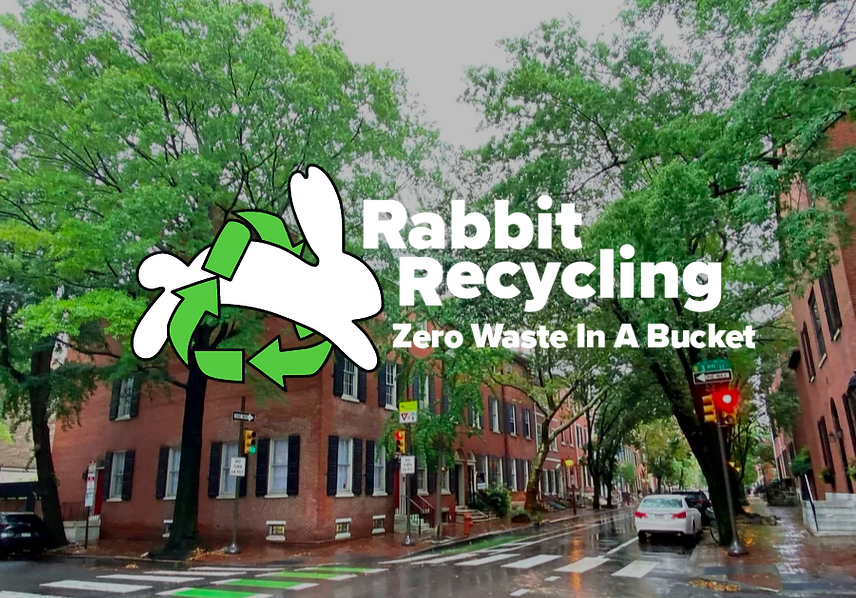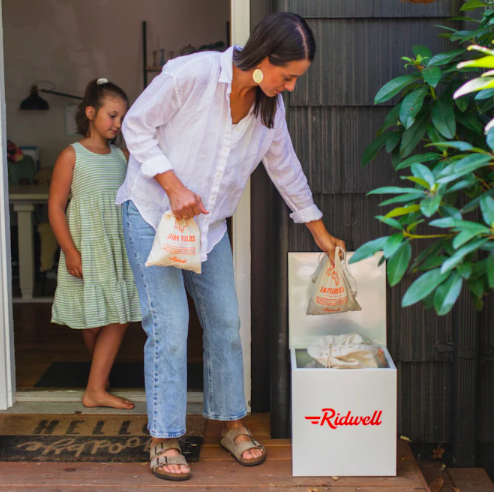When assessing our personal and corporate impact on the planet, the common phrase, "reduce, reuse, recycle," can be helpful. It is important, first of all, to find ways to reduce the amount we consume and the waste we produce. Next, we can find ways to reuse items, prolonging their life and reducing our dependence on purchasing new products.
When these avenues are not possible, we can look for opportunities to practice recycling, which typically involves gathering large quantities of specific materials to be broken down and either returned to the earth or repurposed for future use. In the United States, municipal recycling services vary widely, as does the amount of material that actually gets recycled. Specialty recycling services are trying to fill these gaps, one community at a time.

These programs are launching in many areas across the United States. Most are regional or city-based, operate on a subscription basis, and will come by your home or business to pick up items that municipal recycling programs may not accept, like plastic film, clamshell containers, batteries, light bulbs, clothing, corks, and plastic produce bags.
Examples of these programs include Rabbit Recycling (Philadelphia based), Casella Waste Systems (Vermont), and TerraCycle Home (New Jersey and Pennsylvania). If you live close to these companies but are not quite in their service area, let them know you are interested - many are looking to serve new areas but need to build community support before they are able to expand.
There are also a growing number of drop-off facilities for hard to recycle items, and some of these specialty companies provide this option in addition to their curbside services. The convenience of home pick up programs, however, results in higher recycling (and composting) rates: if it's easy, people are much more likely to actually follow through on recycling something, instead of tossing it in the trash.

One of the fastest growing specialty recyclers is Ridwell. The company started when founder and CEO, Ryan Metzger, tried to recycle batteries with his son and found out just how difficult it was. Circlewood interviewed Ridwell's CEO and founder, Ryan Metzger, on the Earthkeepers podcast. You can check out the trailer in the Youtube clip below, and listen to the whole episode here.
Ridwell's iconic pick up boxes can be found in Washington, Oregon, California, Colorado, Minnesota, and Texas. Ridwell has found success by focusing on staying local and partnering with local organizations to reuse items. Ridwell will also partner with larger organizations, such as Trex, to do support projects like converting plastic film into composite decking.
Many in the Circlewood community are Ridwell subscribers, and we asked a few to share their experience.
Sally Jo likes the creativity, flexibility, and transparency.
I’m able to send things for recycling that would otherwise go in the garbage, especially multi-layer plastic. I am not aware of another avenue to recycle this item other than through Ridwell (multi-layer plastic refers to items like frozen vegetable bags or thicker produce bags - think grapes). Ridwell also makes “recycling” some things like clothes, lightbulbs, batteries very simple and convenient. As long as clothes are clean, they can be used for furniture stuffing if beyond wearability. It’s not limited to your household. You can invite your neighbors to use your service if you haven’t reached capacity. You opt in when you want pick-up. They have profiles of what groups/companies use the materials and for what. That helps you know they actually are being used and diverted from a landfill and it can be inspiring.
She also sees some limits:
Recycling seems to be a pretty exact science, so it seems really important to know exactly what they can take within a category. Sometimes, their descriptions are not adequate. On the other hand, when I do email them asking a question about an item, they are quite quick to respond specifically. I wish they could take more plastic. Between this and my garbage company’s recycling, there are still a number of items not accepted. It doesn’t really decrease our use of plastic, which would probably be a better solution.
Forrest appreciates the scope of Ridwell's services:
I especially appreciate the flexibility of the “Featured Categories.” In this category they take items that are outside the normal list of items they recycle, but I can always switch it to a different category if I don’t have anything for the featured category on offer.
He also finds some things are not straight forward:
I don’t quite understand the need to have the plastic film collection as a separate category for multi-layer plastics—for which I always have much more to recycle. But I do my best to separate the two, given the information they provide.
Louise especially likes their ability to take worn out clothes and shoes:
There are many other places where we can take clothes that are gently used, but clothes that aren’t in such good shape would just go into the garbage if we didn’t use Ridwell. I don't use the styrofoam add-on feature very often, but I am so glad to have something to do with it besides put it in the garbage. Overall, keeping any of these things out of the landfill is a very positive thing.
She has found the pick up schedule a little challenging.
Because it’s an every other week schedule, it’s not automatic for me and I usually forget about it until the day before they are coming when I get a text giving me a last chance to schedule it. I try to use the service consistently and often I’m scrambling around in the morning trying to fill the bags.
Hopefully, in the future recycling will become easier and more efficient. Until then, creative entrepreneurs are filling some of the gaps through specialty recycling. Are you aware of specialty recycling programs in your area? Have you tried one? We’d love to hear from you about your experience.
Thanks,
Jessalyn
Feel free to email me at jessalyn.gentry@circlewood.online.